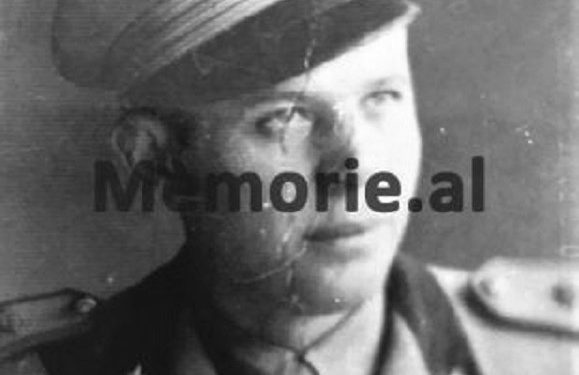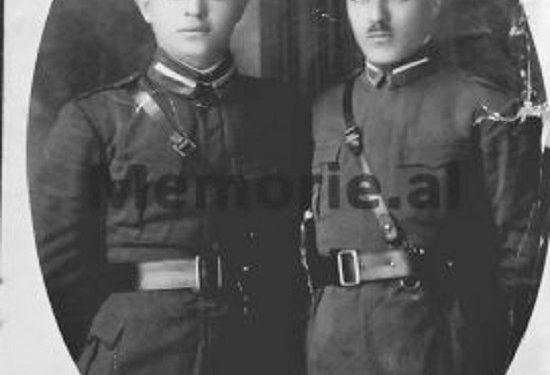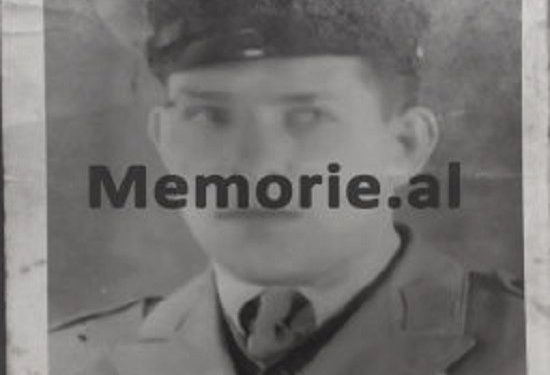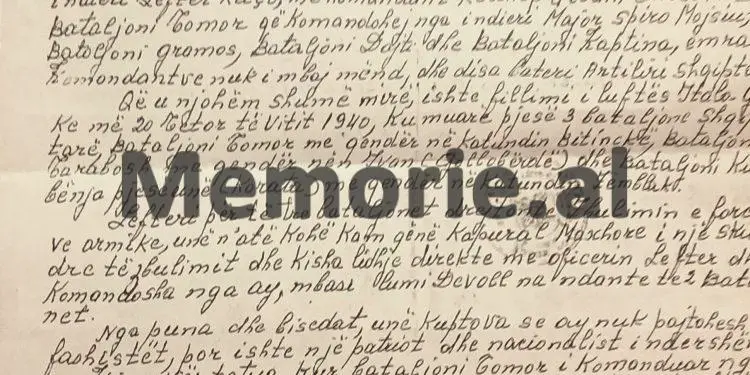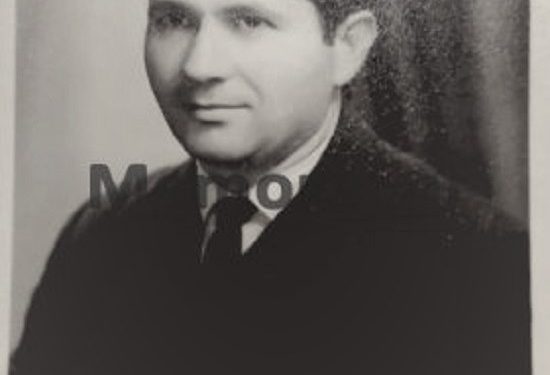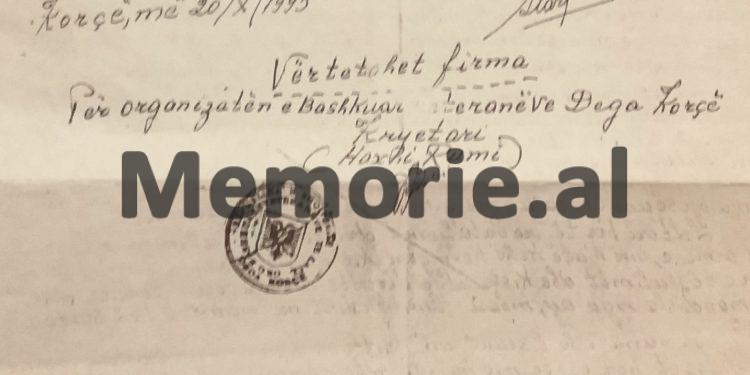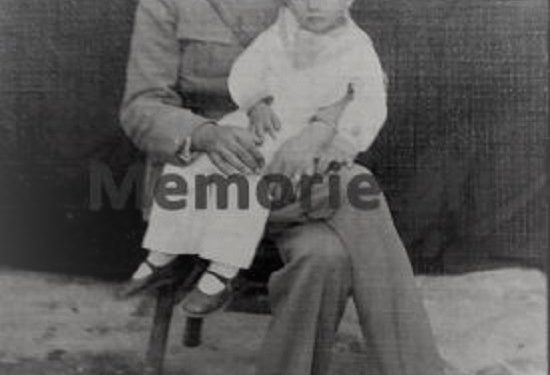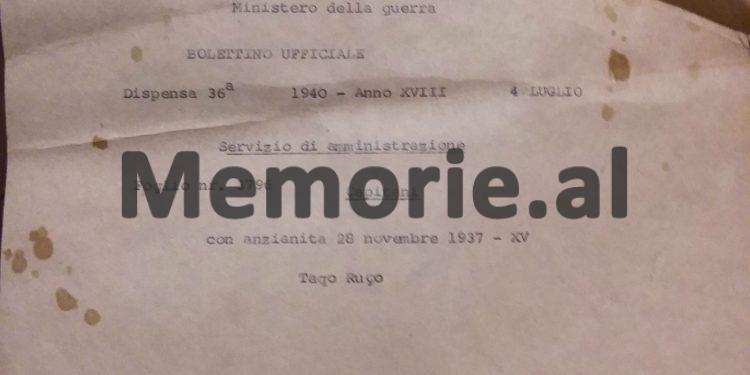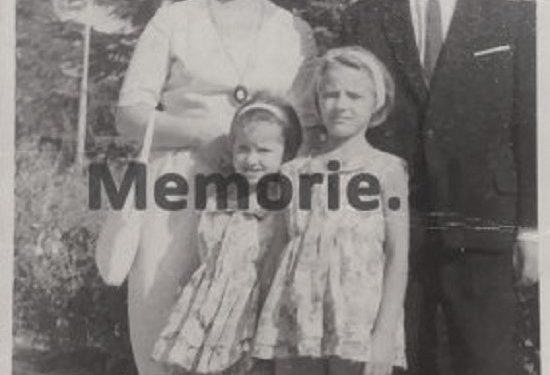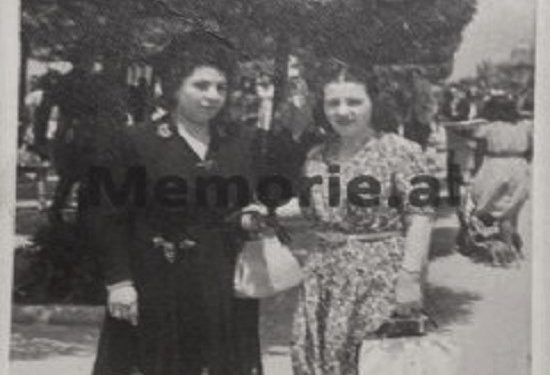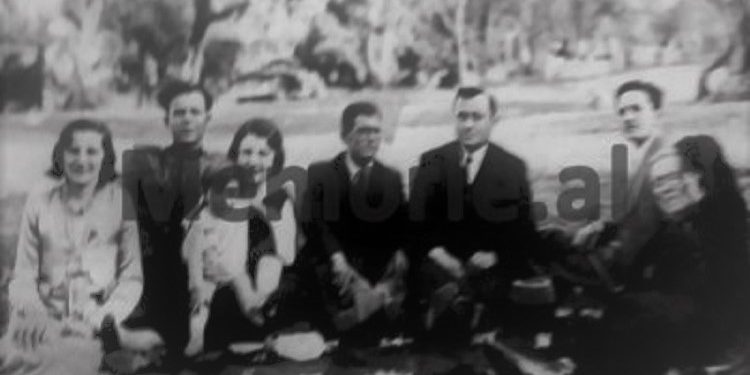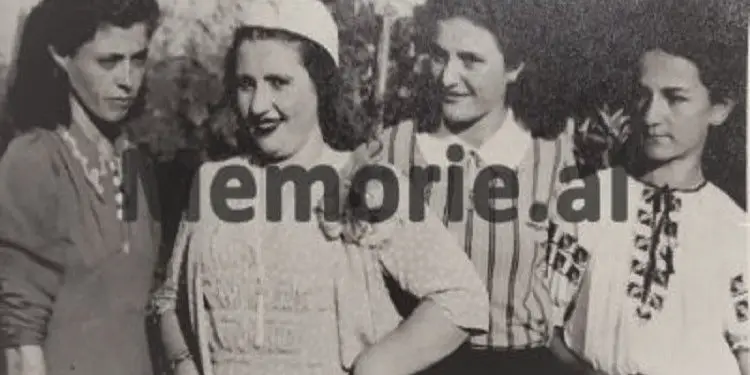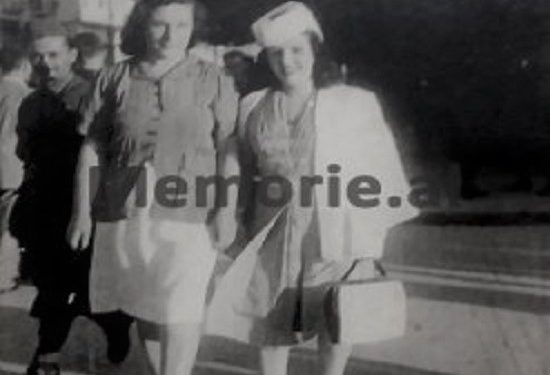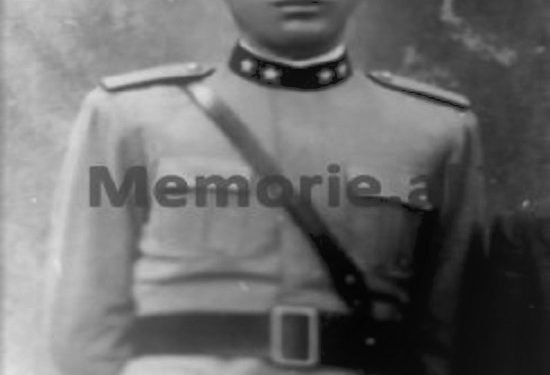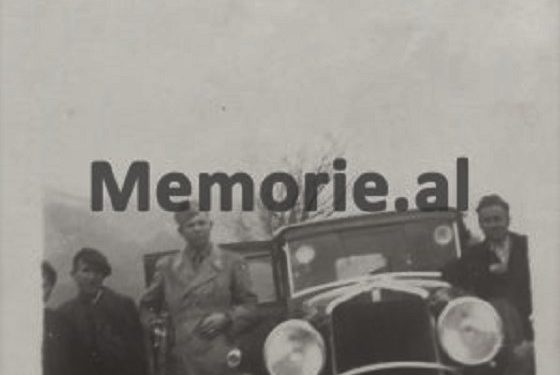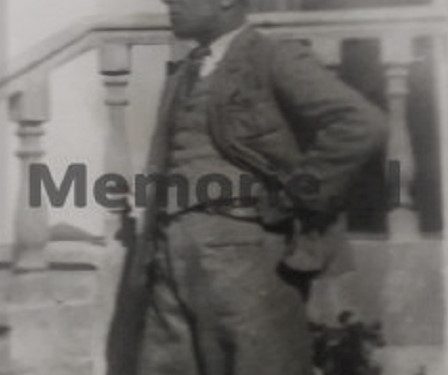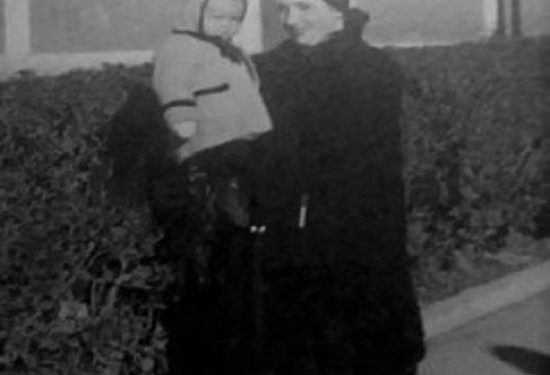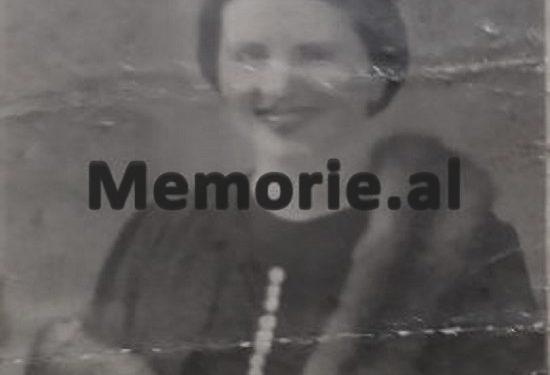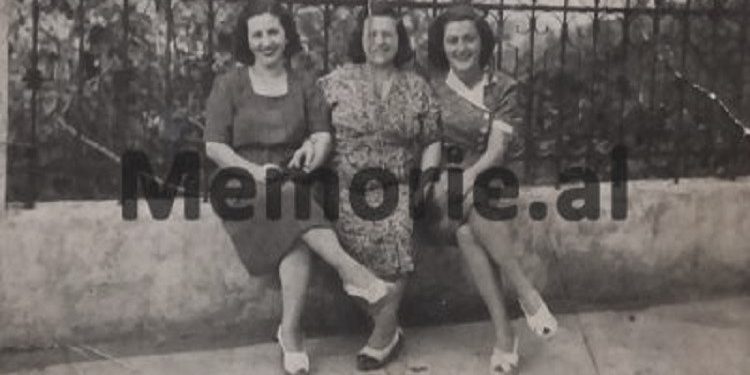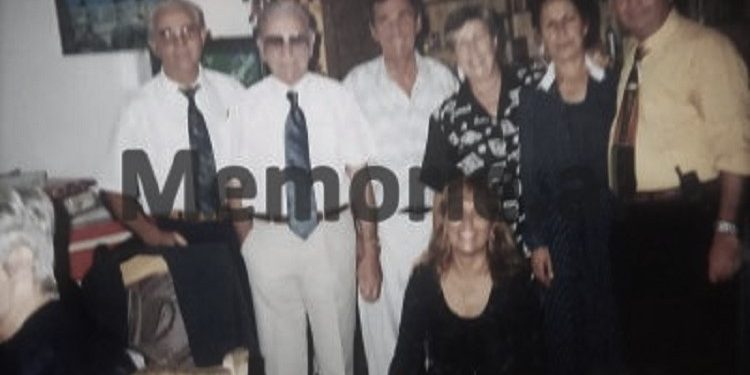Dashnor Kaloçi
Memorie.al publishes the unknown story of Lefter Ruco, originally from the Shalës village of Kolonja, who during the period of the Zog Monarchy, along with four other brothers, served as its military in various cities in the country and during the fascist occupation, he was an officer of the Albanian National Army, having deserted from the Italian-Greek War Front with the “Taraboshi” Battalion he was a part of. Testimony of his nephew, Armando Rucos, for his uncle better known as ‘Lefter Lefteri’, the character of the film ‘Eighth in Bronze’, and the vice president of the Anti-Fascist National Liberation War Veterans Organization of the Korça district, who a statement showing how he knew Lefter Ruco, from the time he was commander of the Taraboshi Battalion, and then when the Communists accused him of being a “traitorous spy” and how he was assassinated by Communist guerrillas at the Korça Qirinxhi Shop and the name of the man who shot at him… ?!
Even after the first Communist attempt to assassinate him, my uncle Lefter was not locked up at home, but continued to work with nationalist leaders, whom he regularly met at the Cincinnati café in Korça. One fine day in November 1943, while he was in that cafe talking to his friends, someone came in to announce that some people from Tirana were looking for him. Lefter knew the man who called him and as he walked out of the cafe with him, the communist guerrillas ambushed him and shot him in the back, leaving him dead. The killing of Lefter made a lot of noise all over the city of Korça and his funeral was attended by hundreds. ” The first person to speak and testify for Memorie.al is Armando Ruco, grandson of the famous “Eighth in Bronze” character, Lefter “Lefter”, who tells the whole story of his family and the version of the assassination of his uncle, Lefter Ruço, who was executed by the communist guerrillas of Korça in 1944. But who was Lefter Ruço and what was his past? Why did the Korça Communists decide to execute him, and how did the people of Korça receive the assassination of Lefter Ruço? How was Lefter’s family persecuted after 1944, and the fate of his two brothers in Communist prisons and three others in the Italian and American armies…
Mr. Armando, what is the origin of your father’s family and at the same time your uncle Lefter Ruço, otherwise known as Lefter Lefter, from the movie “Eighth in Bronze”?
The origin of our family is from the Shalës district of Kolonja and in that famous village, not far from the town of Erseka, have lived since our ancestors are not remembered. Until 1944, there was the family of our grandfather Refail Ruco, who had been known as a merchant, in a beautiful two-story villa there. In addition to being a trader, our grandfather Refail also served for a long time as head of the village of Shala, and during that time he has done many charities, helping many of the poor families to educate their children. One of those persons, whom our grandfather intervened to give him a scholarship, was the famous General Spiro Shalesi.
In addition to Lefter, how many brothers and sisters did your father have and where were they educated?
My grandfather, Refail Ruco, had seven sons and two daughters. The first of the children was my father, Taqo, who was born in 1903 and was followed by Spiro, Theodore, George, Lefter, Lazarus, Kocho, and two daughters, Evanthia and Urania. Of the seven boys Refail had, five of them became military, studying in various schools at home and abroad, while only one of them, the youngest, Koco, graduated as a geometric engineer. My father, Taqo Ruco, and his older brother Spiron, were initially educated in one of the Thessaloniki high schools in Greece, which they failed to complete after being dropped out of school in 1919 accused of nationalist Albanians working and acting to the detriment of Greece.
What’s next for them?
After being expelled from the Thessaloniki gymnasium, the Greek authorities sought to arrest them, and they fled from there to escape to Albania. Only my father, Taqo, was able to return to his home in the village of Shalës in Kolonja after Spiro was captured by the Greeks, who then beheaded. His body remained in Greece and was never found. While his father’s five other brothers, Theodhori, Jorgji, Lefter, Llazari and Koço, graduated from Elbasan Normale School.
After graduating from Elbasan Normal, where did your father go to school with Lefter and his other brothers?
I’m starting it with my dad, Taqo Ruco. Given that he had studied for four years in Thessaloniki, Sulejman Delvina’s government, expelled from the Lushnja Congress, sent him to the officer training school, also in Tirana, where his father received his lieutenant rank. Thereafter he was appointed to the Tirana Garrison as a National Army officer and served there until June 1924, when the fanatical forces overthrew the legitimate government of that time. After that, along with some of the other servicemen who had served with Interior Minister Ahmet Zogu, the father fled Albania and settled in Greece. He remained there illegally until the end of December 1924, when he returned to Albania with Zogist forces commanded by Koco Kota and Osman Gazepi.
But with the arrival of Zog in power, that is, with the Triumph of Legality, what happened to him, did he get any assignments?
With the triumph of Legality on December 25, 1924, the father was again assigned to Tirana, and from that time until April 1939, he served as a high-ranking Kingdom officer in the finance branch in Tirana, as well as in Elbasan and Shkodra. Following opposition to the fascist invasion of Albania in April 1939, the father returned to the Albanian National Army, serving as a Finance Minister in Tirana.
What about during the occupation of the country…?
During the occupation period, in 1943, Taqo Ruco joined the Ballist and Legalist nationalist forces and remained with them until the end of the War in November 1944.
What about the other uncles, where they had studied and served during the Monarchy?
The other four uncles, Theodore, George, Lefteri and Llazi, after graduating from Elbasan Normal, were initially educated in the officer training schools in Albania, specializing later in various courses in Italy. Like my father, his four other brothers served as Kingdom servants during the time of the Bird Monarchy.
Let’s go back to Lefter, specifically where he served as a military man during the Monarchy and then during the occupation of the country?
After finishing various schools and courses, Lefter served as a soldier in the Kingdom of Zog in Pogradec and then in the district of Dibra, where he was occupied by the country in April 1939. After that he left Albania, staying for some time on the run in Yugoslavia. With the reorganization of the National Army, in mid-1939 Lefter responded to the government’s call at that time, and after the amnesty granted to all former military men who had opposed the occupation of the country, he returned to Albania. After staying in Tirana for about two or three months with his brother Taco, Lefter agreed to serve again in the National Army, being sent to the Italian-Greek war front. After the desertion of the Albanian military on the war front with Greece to escape punishment, Lefter went up the mountain, joining the anti-fascist gangs operating in the provinces of Korça and Pogradec. With those partisan groups, Lefter remained a nationalist fighter until June 1943, and at that time he left after a bitter conflict with their Communist leaders.
What happened to Lefter after the conflict with the Communists?
After the conflict with the Communists, Lefter returned to the town of Pogradeci, where he left his wife Olga (Thomaidha) and son Koco. He had been married to Olga since 1931, when he was serving as a soldier in the Kingdom of Zog, and from that marriage they had only one son.
Upon returning to the family in the town of Pogradec, what attitude did he hold, was Lefter more involved with the affairs of the War?
Also following the instructions that Lefter received at the time from his brother, Taqo (my father), who lived in Tirana, he joined some of the main nationalist leaders of Ball and Legal, working closely with them.
Given the conflicts he had with the Communist leaders when he was on the mountain, did Lefter have more trouble with them after coming down to the cities of Pogradec and Korça?
Since June 1943, when he left the ranks of anti-fascist gangs and joined the nationalist Balli and Legalist leaders operating in Korca county, the Communists sentenced Lefter to death as they looked at him as a potential enemy. Given this fact, guerrilla units of the Korça communists pursued him to kill him. Six months before the assassination, in which he was killed, they made a trap.
What specifically …?
Communist leaders made an invitation, allegedly for talks, and Lefter agreed to meet and talk to them about their problems and disputes. But when Lefter went to the meeting place, somewhere in a village on the outskirts of the city of Korça, communist guerrillas attempted to shoot him, and he could barely escape from them.
How did Lefter escape the trap of the Communists… ?!
As far as I know, he escaped with his peasant companions, who had taken with him, who intervened at the last moment when he would be executed by the communist guerrillas of Korça who had taken him hostage.
After that, how did his murder happen?
Even after that event, where he barely escaped execution, Lefter was not locked up at home, but continued his cooperation with nationalist leaders, whom he met regularly at Candice Coffee in Korça. On a beautiful November 1943 day, while he was in that cafe talking to his nationalist friends, someone came in to announce that some people were coming from Tirana. Lefter knew the man who called him, and as he walked out of the cafe with them, the communist guerrillas ambushed him and shot him in the back, leaving him dead. The killing of Lefter caused a lot of rage throughout the city of Korça, and hundreds of people attended his funeral.
In the Albanian movie “Eighth in Bronze” your uncle, Lefter, appears as a German military and their spy?
It is not true at all, and everything given in that film about Lefter is a fabrication of the propaganda and historiography of the communist regime of that time. After desertion from the Italian-Greek war front in 1940, Lefter has never been a soldier of either the Italians or the Germans, nor their spy. On the contrary, he was a nationalist patriot and this is well known to all the Korça of that time, who buried him with great reverence.
But why did the Communists execute Lefteri…?
The Communists executed Lefter only because he was an anti-Communist and their potential enemy. They had no other reason to kill him with the assassins. How could Lefter be a German spy, when in 1944 the Germans burned our two-storey house in the village of Shala in Cologne, and two other uncles, George and Theodore, who had been with the Anglo-American missions, had been exiled in Crete of Greece by germans ?!
After the Communists came to power in late 1944, what happened to Lefter’s family and his brothers?
Since the end of 1944 until the early 1990s, when the Communists stayed in power, Lefter Ruco’s family and relatives have felt the heavy burden of persecution.
Specifically, what…?
Lefter’s wife, Olga, (died 1960) with her son, Koco, spent her entire life in prisons and internment. Likewise, my father, Taqo Ruco, served about 23 years in prison, where he died in 1979 in the Tirana prison. The other uncle, Koco, (the youngest of the brothers), disappeared under unknown circumstances in 1956 in Vlora’s Drashovica, when he worked as a geometer in building bridges.
And the rest of you were in Tirana… ?!
We were in Tirana too, but the shadow of persecution followed us on Lefter Ruco’s nephews, excluding us from work and sports several times.
What about other uncles and their families…?
Three other uncles, George, Theodore, and Lazarus, were fortunate to escape the cruel communist persecution as happened to our families, since they fled Albania in 1944 and lived in Italy and the US, where they served as soldiers until they came out. in retirement.
Did you as a family have a correspondence with them, namely correspondence with letters?
At first in the early years of the war we were allowed to correspond but afterwards we were no longer allowed and we had no idea where they came from. They too were unaware of our fate, but occasionally received news from Albanians fleeing communist Albania. Only after the 1990s did everything become clear to us and to them.
But after the 90s, how is your uncle considered. Lefter Rucho, has he been rehabilitated?
After the 1990s, the Communists continue to call them traitors again, as they do with all the other figures and characters of the War that the Communist regime has anathematized as “enemies, spies, and traitors.”
What about many of them and have been rehabilitated…?
This has not happened to our uncle yet, but I have contacted some of those war veterans who have rejected the communist regime’s version of being a traitor. One of them is Servet Mahmut Lari, (born January 5, 1918), born in the village of Pojan in Korça, and a resident of Korça, who also gave me a statement about Lefter Ruco, which he is making available. and you can publish it.
Lefter Ruco was not a traitor
Statement of the Vice President of Veterans of the Anti-fascist-National Liberation War of Korça I survived Servet Mahmut Lari, born January 5, 1918, born in Pojan village of Korça, and residing in Korça, neighborhood 14, “Viktor Eftimiu” street, region no.3, apartment 37, entrance no.2, apartment 10, a veteran of the United Veterans of Anti-Fascist National Liberation War Veterans Organization and its vice president, declare under my personal and criminal responsibility the following: I knew Mr. Lefter Ruco from the Shala village of Kolonja very well since 1939, when he was an officer in the Tarabosh Battalion, and I was a soldier in the Korata Battalion. in the Italian army when I occupied Italy fascist Albania in ’39. That I knew well was 1940, when the Italian-Greek war would begin.
At this time in the Italian army were 6 Albanian battalions, the “Korata” battalion I was part of, with the commander of the Fuat Dibra battalion, the “Tarabosh” battalion of the late Lefter Ruco, with the commander Rexhep Gilani (Kosovar), the “Tomori” battalion. commanded by the late Major Spiro Moisiu, the “Gramoz” battalion, the “Dajti” battalion and the “Captain” battalion, I do not remember the names of the commanders, and some Albanian artillery batteries.
To the best of our knowledge, it was the beginning of the Italian-Greek war on October 20, 1940, where three Albanian battalions, the “Tomori” battalion based in Bitincka, the “Tarabosh” battalion under Ivan (Golloborda) and the battalion I (“Korata”) was based in, Zemblak. Lefter for all three battalions led the reconnaissance of enemy forces, I was at that time the “Captain Major” of a reconnaissance squad and had direct links to Officer Lefter and was commanded by him as the Devoll River divided the two battalions.
From work and conversation, I realized that he disagreed with the fascists, but he was an honest patriot and nationalist. This was proved when the “Tomor” battalion commanded by the brave and determined patriot Spiro Moisiu returned the rifle and did not want to fight the Greeks, the fascists arrested him, and the battalion was interned. So did Officer Lefter Rucho, both in his battalion and ours, we all left the front, for that Lefter is arrested and sentenced to several years in prison.
And later Lefter fights as a nationalist and patriotic officer for the good of the Fatherland. He never agreed with the program of the Communist Party, and for this, as the Party used to do, left no epithets, fascist, ballist, Nazi, traitor, etc. For this he was plotted with an assassin in infidelity, and killed by the assassin Selman Vishocica, along with his guard at the Korça Candle Shop. He was not a traitor, neither fascist nor Nazi, but just as Enver killed all the patriots, honest nationalists, he killed Lefter like the others.
The declarant
Servet Lari (signature)
Korça, 20. X. 1995




